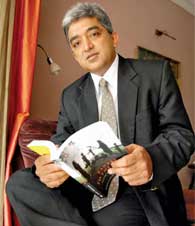|
Executive Interviews: Interview with Harish Bijoor on Social Cause Marketing
September 2009
-
By Dr. Nagendra V Chowdary
Studies reveal that social marketing helps in differentiating one’s brands, increasing market share and gain more brand loyalty. Despite these benefits, social marketing spending is less when compared to conventional marketing. What are your views on it?
I agree though this is yet to be audited and proven. The cycle time of delivery is a delayed cycle time as well. It takes long for such campaigns to deliver. Brand Managers need patience and the will to harvest after a long time cycle. Impatient brand managers don’t get much out of this. The fifth P of marketing here is Patience with a big P! Do we need to exclusively have something called social marketing, when the businesses in general are expected to be socially responsible and ethically sound? Why do you think there is a demarcation between commercial marketing and social marketing?
This demarcation is there, but will blur in the long term. All marketing operates within the context of society. All marketing will therefore have to adopt stances that are friendly and in sync with consumer needs, wants, desires and aspirations.Over a period of time, all marketing will be social marketing. How far can social marketing programs in India be successful in terms of creating a social impact/change?
They have a big role to play. Brands need to discover that they need to give back to society what they take from it. This is going to be a brand sustainable practice in the long run. It cannot be forgotten or ignored. Brand will create change – in attitude, in behavior and in terms of sociocultural impact. As a new marketing initiative, will cause-related marketing approach be successful in India?
It will. This is just the beginning. Watch out for more. Socially-ostracised categories such as cigarettes, liquor, gutka will take up more of these. Look out for borderline categories such as oils, sugars and petroleum to take up more of these.
|
The interview was conducted by R Naga Sandhya and P Girija under the guidance
of Dr. Nagendra V Chowdary, Consulting Editor, Effective Executive and Dean,
IBSCDC, Hyderabad. This interview was originally published in Effective Executive, Icfai University
Press, Sep 2009. Copyright © Sep 2009, IBSCDC
No part of this publication may be copied, reproduced or distributed, stored in a
retrieval system, used in a spreadsheet, or transmitted in any form or medium –
electronic, mechanical, photocopying, recording, or otherwise – without the permission
of IBSCDC. |
